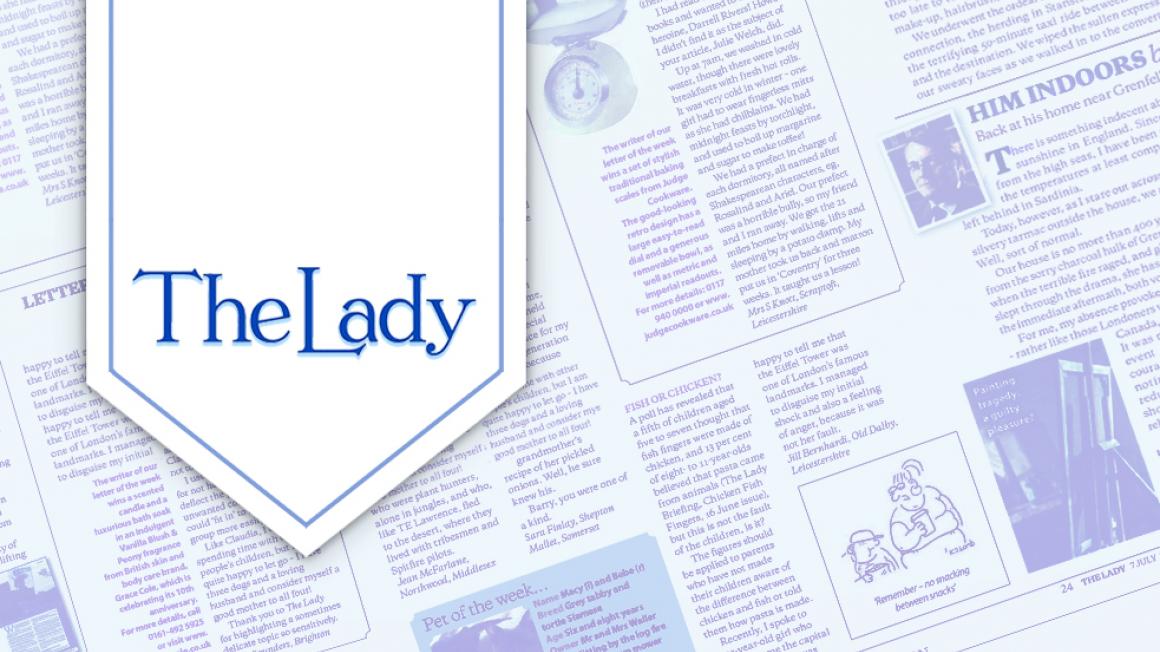The Lady Guide to Modern Manners:22 February
Do you think people are getting very casual about letters? I was brought up to believe that they were sacred but when I moved house recently the new owner of my old place just threw away all the post that came for me.
Matthew Fox, Royston
Dear Matt,
You can crash down with the full weight of the law if someone is chucking out your mail. The Postal Services Act 2000 decrees a £5,000 fine or six months in jail, or both, for the crime of intentionally disposing of, or indeed opening the post of, another.
There have been few convictions though, possibly none. All the same, to be thoroughly pompous about it, it’s the duty of all upright citizens to forward mail or deal with misdirected mail.
You hear people carrying on as if it were all the addressee’s fault. But even if you pay for the Royal Mail’s redirection service, it doesn’t always work. And letters can turn up years after you’ve moved house. They might be important.
It’s the simplest thing to forward post: cross out your address and write the forwarding address at the side. If you don’t have an address, just put, ‘Not known here’ and re-post.
The trouble is, anything to do with post takes time, or at least more time than it takes to forward an email, and too many people collapse under the strain.
I love the ceremony and strictness of letters. Do you remember how awful it was that Miles, the sinister small boy in The Turn Of The Screw, possibly in the grip of monstrous ghosts, stole the governess’s letter to the master from the hall table? This really was a sign of diabolical corruption. And how, in The Winslow Boy, Ronnie Winslow got so much stick for opening the letter from the Osborne authorities that was addressed to his father?
Don’t ever open letters not addressed to you when they are marked ‘Personal’ or ‘Private and Confi dential’. Accidents happen when you’re tearing through a pile of post, but it really is better if you look before you leap. That you read the letter is a suspicion that can never be erased. The opening is a terrible thing.
Recently I learned from the letters of the Queen Mother that if you put ‘Personal’ on the envelope when writing to the Royal Family, your missive will be placed in the hand of Her Majesty unopened.
What about envelopes? The Queen of course takes all this very seriously, handwrites the address on all personal letters (as should you) and always uses the correct titles. But do you? Do you know what to put on a letter to a duchess or a high court judge? But that’s a subject for another day.
Please send your questions to Thomas.blaikie@lady.co.uk or write to him at The Lady, 39-40 Bedford Street, London WC2E 9ER
WHAT TO DO… bad behaviour
I refer to my last week’s effort about how, for Jane Austen, manners maketh the man. Lapses of manners, however small, such as in Emma, when Frank Churchill leaves the door open and exposes Mr Woodhouse to draughts, are a sure indication of poor character. Space did not permit me to put the other side of the question which, in our own age, must trouble us.We hesitate to judge and we are altogether less certain about who people are and what to make of them. Manners can appear a superfi cial add-on. Someone might be exquisitely polite, yet rotten to the core, another savage in manners but merely untutored.
I see that Alain de Botton, whose new book Religion For Atheists I am looking forward to reviewing in The Lady, is now touching upon politeness and the need for decorum and restraint in our self-expression.
We should resist, he says, the lure and glamour of evil. He wants to think about goodness. I must read the book, but I fear it might be just a weeny bit pious. Some bad behaviour must be permitted. If we can’t rant and vent periodically, we could become warped inside.



